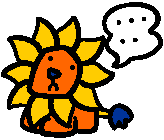
----------------------------------------------------------------
#17 道徳とは人間だけが持っているものです(動物は道徳の意味を理解
できません);したがって人間の道徳を動物に適用しようとするの
は道理に合わないのではないでしょうか?
----------------------------------------------------------------
この議論のおかしな点は次の例に置き換えてみれば簡単に立証できま
す:幼児や小さな子供には道徳の意味が理解できません。したがって幼
児や小さな子供に対し道徳を適用するのは道理に合わないのでしょうか?
もちろんそんな事はありません。私達は大人に対して危害を加えない
のと同じ理由で幼児や小さな子供に対しても危害を加えません。道徳を
理解できると言う事と道徳の配慮の対象となるかと言う事は別の問題な
のです。
この区別は正式には「道徳主体者(moral agents)」と「道徳客体者
(moral patients)」という対になる概念を用いて説明されます。
道徳主体者とは道徳を正しく理解し、道徳に基づいて何をなすべきか
を決める能力を持ち、自らの自由意志によってその決定に従った行動を
とる人間の事です。そうした能力があることから道徳主体者に対し、自
らの行動に責任を持たすのは正当なことです。普通の人間の大人はこの
道徳主体者に当たります。
一方、道徳客体者には道徳主体者が持っている能力がありません。し
たがって道徳客体者に対し、自らの行動に責任を持たすことは正当とは
言えません。しかし、彼らには苦痛を感じる能力があるので道徳主体者
の配慮の対象となるべき存在なのです。人間の幼児や小さな子供、精神
遅滞者や精神障害者、それに人間以外の動物などが道徳客体者の例です。
人間以外の動物が道徳客体者であるとするなら動物は道徳的配慮の対
象という事になり、人間にしているのと同様の配慮をするのが理にかな
った事と言えます。
DG
参照:
#19、
#23、
#36

...............



-----------------------
#17 Morals are a purely human construction (animals don't understand
morals); doesn't that mean it is not rational to apply our morality
to animals?
-----------------------
The fallaciousness of this argument can be easily demonstrated by making
a simple substitution: Infants and young children don't understand morals,
doesn't that mean it is not rational to apply our morality to them? Of course
not. We refrain from harming infants and children for the same reasons that
we do so for adults. That they are incapable of conceptualizing a system of
morals and its benefits is irrelevant.
The relevant distinction is formalized in the concept of "moral agents"
versus "moral patients". A moral agent is an individual possessing the
sophisticated conceptual ability to bring moral principles to bear in
deciding what to do, and having made such a decision, having the free will
to choose to act that way. By virtue of these abilities, it is fair to hold
moral agents accountable for their acts. The paradigmatic moral agent is the
normal adult human being.
Moral patients, in contrast, lack the capacities of moral agents and thus
cannot fairly be held accountable for their acts. They do, however, possess
the capacity to suffer harm and therefore are proper objects of consideration
for moral agents. Human infants, young children, the mentally deficient or
deranged, and nonhuman animals are instances of moral patienthood.
Given that nonhuman animals are moral patients, they fall within the
purview of moral consideration, and therefore it is quite rational to accord
them the same moral consideration that we accord to ourselves.
DG
SEE ALSO: #19, #23, #36




